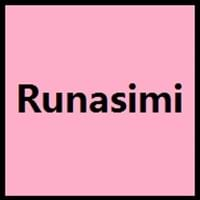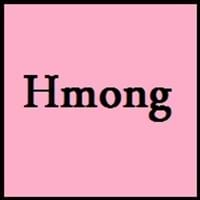Quechua vs Hmong
Countries
Argentina, Bolivia, Chile, Colombia, Ecuador, Peru
China, Laos, Thailand, United States of America, Vietnam
National Language
Bolivia, Ecuador, Peru
China, Gambia, Laos, Thailand, United States of America, Vietnam
Second Language
Not spoken in any of the countries
Not spoken in any of the countries, Republic of Brazil
Speaking Continents
South America
Asia
Minority Language
Not spoken in any of the countries
Not spoken in any of the countries
Regulated By
Not Available
Not Available
Interesting Facts
- One of the most widely spoken indigenous language in the America is Quechua.
- Quechua language has borrowed many words from Spanish.
- Hmong language may not be so popular at first sight, but it has rich history and various dialects are spoken by millions of people.
- Hmong language came from western part of China.
Similar To
Not Available
Not Available
Derived From
Not Available
Not Available
Alphabets in
Quechua-Alphabets.jpg#200
Hmong-Alphabets.jpg#200
Writing Direction
Not Available
Left-To-Right, Horizontal
Language Levels
Not Available
Hello
Rimaykullayki
Nyob zoo (Nyaw zhong)
Thank You
Solpayki
Ua tsaug (Oua jow)
How Are You?
Allillanchu
Koj nyob li cas (Gaw nyaw lee cha)
Good Night
Allin tuta
zoo hmo
Good Evening
Wuynas nuchis
zoo yav tsaus ntuj
Good Afternoon
Wuynas tardis
zoo tav su
Good Morning
Wuynus diyas
zoo thaum sawv ntxov
Please
Not Available
thov
Sorry
Pampachaykuway
Thov txim (Thaw zhee)
I Love You
Kuyayki
Kuv hlub koj
Excuse Me
Pampachaway
zam txim rau kuv
Dialect 1
Ancash
Hmong Njua
Where They Speak
Peru
Laos
Dialect 2
Huánuco
Hmong Daw
Where They Speak
Peru
China
Where They Speak
Peru
Vietnam
How Many People Speak
Not Available
Native Name
Qhichwa
Hmong
Alternative Names
North La Paz Quechua
Mong
French Name
quechua
hmong
German Name
Quechua-Sprache
Miao-Sprachen
Pronunciation
Not Available
Not Available
Ethnicity
Quechua
Hmong people
Language Family
Quechumaran Family
Hmong–Mien Family
Subgroup
Andean Equatorial
Not Available
Branch
Not Available
Not Available
Early Forms
No early forms
No early forms
Standard Forms
Quechua
Hmong
Signed Forms
Not Available
Not Available
Scope
Macrolanguage
Macrolanguage
ISO 639 1
qu
No data available
ISO 639 2/T
que
Not Available
ISO 639 2/B
que
Not Available
ISO 639 6
Not Available
Not Available
Glottocode
quec1387
firs1234
Linguasphere
No data Available
No data available
Language Type
Living
Living
Language Linguistic Typology
Not Available
Not Available
Language Morphological Typology
Agglutinative, Synthetic
Not Available
Quechua and Hmong Language History
Comparison of Quechua vs Hmong language history gives us differences between origin of Quechua and Hmong language. History of Quechua language states that this language originated in 16th Century whereas history of Hmong language states that this language originated in 19. Family of the language also forms a part of history of that language. More on language families of these languages can be found out on Quechua and Hmong Language History.
Quechua and Hmong Greetings
People around the world use different languages to interact with each other. Even if we cannot communicate fluently in any language, it will always be beneficial to know about some of the common greetings or phrases from that language. This is where Quechua and Hmong greetings helps you to understand basic phrases in Quechua and Hmong language. Quechua word for "Hello" is Rimaykullayki or Hmong word for "Thank You" is Ua tsaug (Oua jow). Find more of such common Quechua Greetings and Hmong Greetings. These greetings will help you to be more confident when conversing with natives that speak these languages.
Quechua vs Hmong Difficulty
The Quechua vs Hmong difficulty level basically depends on the number of Quechua Alphabets and Hmong Alphabets. Also the number of vowels and consonants in the language plays an important role in deciding the difficulty level of that language. The important points to be considered when we compare Quechua and Hmong are the origin, speaking countries, language family, different greetings, speaking population of these languages. Want to know in Quechua and Hmong, which language is harder to learn? Time required to learn Quechua is 44 weeks while to learn Hmong time required is 44 weeks.





